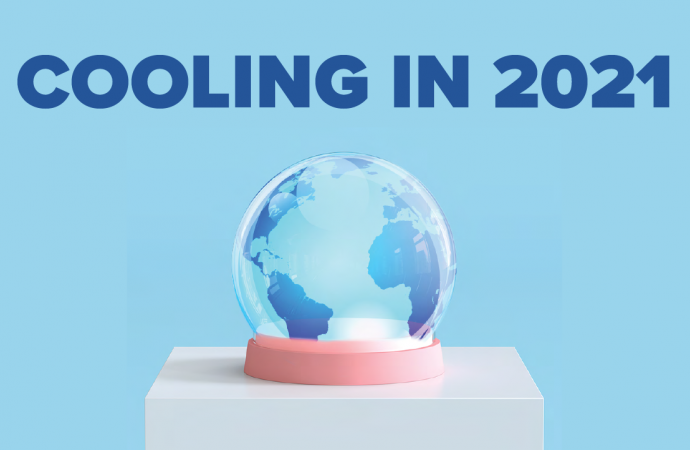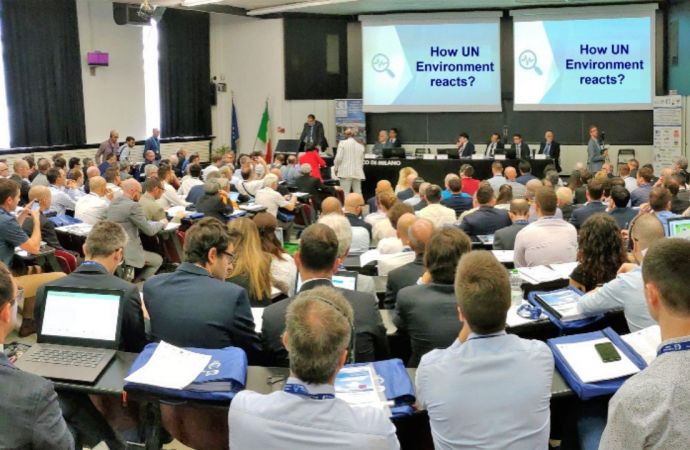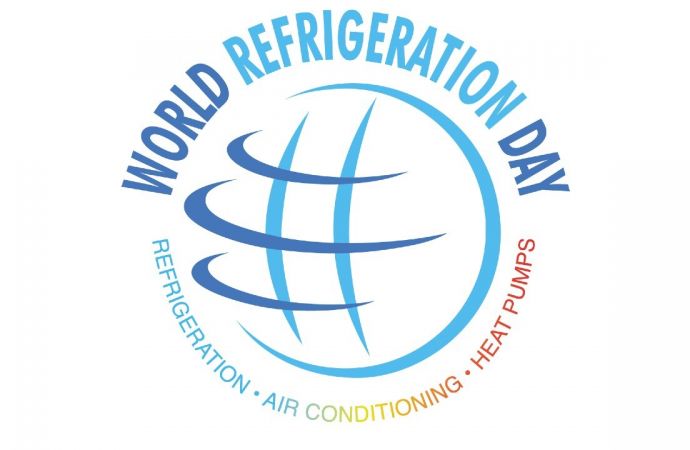Vaccine distribution and safety indoors will depend on access to HVAC&R technology.

With multiple vaccines on the horizon, there is real hope that the world will gain the upper hand on the COVID-19 pandemic in 2021.
To make that happen, the HVAC&R industry will play a key role. In particular, it will provide the fridges needed to keep some of the vaccines at their required ultra-low temperatures. And many of those fridges utilize natural refrigerants.
For the Pfizer/BioNTech vaccine, which needs to be stored at -70°C (-94°F), one available refrigeration system is made by Mirai Intex, a five-year-old Austrian engineering and manufacturing company. Mirai Intex’s ultra-low-temperature systems use air (R729) from the atmosphere as its refrigerant to deliver temperatures down to -110°C (-166°F), according to the company.
Athens, Ohio (U.S.)-based Stirling Ultracold makes a novel cooling technology that can accommodate the Pfizer/BioNTech vaccine as well as a vaccine from Moderna that requires storage at (-20°C/-4°F).
Stirling Ultracold’s fridge employs a “free-piston Stirling engine” design that uses a reciprocating piston and displacer to compress and expand 10g of helium (R704), along with a continuous, gravity-driven thermosiphon to chill 90g of the hydro- carbon ethane (R170).
Other ultra-low-temperature (down to -86C/-123F) freezer providers that use natural refrigerants (propane/R290 and R170) include ThermoFisher Scientific and PHC Corporation of North America (PHCbi).
In addition to the cooling technology itself, an adequate cold chain will be required to distribute vaccines to the 60 -70% of the world’s popula- tion (4.7-5.5 billion people), noted a new study from the University of Birmingham (U.K.) called “Understanding the cold-chain challenge for Covid-19 vaccination.” In particular, developing countries often lack “seamless, fully integrated functioning cold chains,” the report noted.
Helpful to the cold chain will be the SolarChill Project, a 20-year collaboration among several inter- national organizations, including Greenpeace. Today there are approximately 100,000 installed SolarChill vaccine cooler units, powered by solar energy and using hydrocarbons (isobutane/R600a) as a refrigerant to maintain temperatures between 2°C (36°F) and 8°C (46°C). “It is expected that the technology will in coming years replace kerosene and solar/ battery coolers in parts of the world that have no secure electrical supply,” said Janos Maté, Senior Policy Analyst for Greenpeace.
While vaccines are being distributed, mitigation measures to limit COVID-19 infections will continue to be needed in 2021. One of those is ensuring adequate ventilation in indoor spaces, such as adjusting (if possible) centralized HVAC units to pull in more outdoor air, and inserting MERV (13 and above) or HEPA air filters into HVAC units, or using stand-alone HEPA units. Another strategy is to keep the relative humidity in a room between 40% and 60%, particularly during the winter when indoor humidity drops.
Professional HVAC/R Services, a U.S. contractor. has helped developed a unit that sanitizes the air in hotel rooms. It “fits inside the room HVAC unit and runs only when the fan is on,” said Joe Kokinda, President/CEO.
Elon Musk, CEO of electric auto maker Tesla, has reportedly expressed interest in developing a highly efficient, next generation HVAC system that features an advanced HEPA filter.
“COVID-19 has raised public awareness about the importance of HVAC systems, which may lead to more demand for our sector’s services,” said Tony Gleeson, CEO and Company Secretary for AIRAH (Australian Institute of Refrigeration). In Australia, the government is aiming some of its recovery programs at upgrading HVAC&R equipment, “which augurs well for our sector,” he added.
Impact on business
COVID-19’s direct impact on business has varied by sector, and will continue to do so.
The commercial and industrial refrigeration sector – essential for the processing, storage and distribution of food – has been less affected, noted John Ackermann, owner of South Africa-based Jack Agencies, and former Publisher/Editor of the Cold Link newspaper.
On the other hand, the opening of new supermarkets and refurbishments averaged 30% to 35% of the 2019 level in South Africa, he noted. “Recovery of this sector may still be slow in 2021 due to the saturation of supermarkets per capita.”
Industrial refrigeration “has fared much better” due to some large projects, including distribution centers for supermarket groups, large food processing plants and third-party refrigerated warehouses,”Ackermann said, adding, “This trend is expected to continue in 2021.”
In Canada, contractor Neelands Group, serving mostly supermarkets, has not seen a major impact on service from COVID-19, said Ady Vyas, its Vice President of Energy and Digital Services. “But from a new construction perspective, we do see some customers holding off on purchase orders, and deferring them to a later date.”
U.S. industrial OEM Evapco, which provides packaged low-charge ammonia (R717) systems, expects business “to rapidly grow as the impact of the pandemic fades in 2021,” said Kurt Liebendorfer, Vice President. “We see many large capital projects that have been put on hold as a result of COVID, and expect many of them to be taken off hold once it starts to diminish.”
Companies that serve the hospitality and restaurant sector have taken a greater hit than those supporting food retail. “It has a deep impact to our operations,“ said Olaf Schulze, Director, Facility, Energy and Resource Management, German wholesale retailer Metro AG. For example, it has reduced the speed of Metro’s F-Gas Exit Program (FEP) and its rollout of transcritical CO2 systems, he noted.
Like many companies, German OEM Efficient Energy, makers of water-only chillers, has been constrained in its marketing efforts by the cancellation of live events, trade shows or customer appointments. But the company has taken to focusing on alternatives such as virtual events, online webinars and social media, noted Thomas Barton, Sales Director.
“Our digital product launch was a great success and we had positive feedback from all angles,” he said. “This is an important encouragement to continue our digital sales and marketing journey to make Clean Cooling accessible to a wider audience all over the world.”
Related stories



